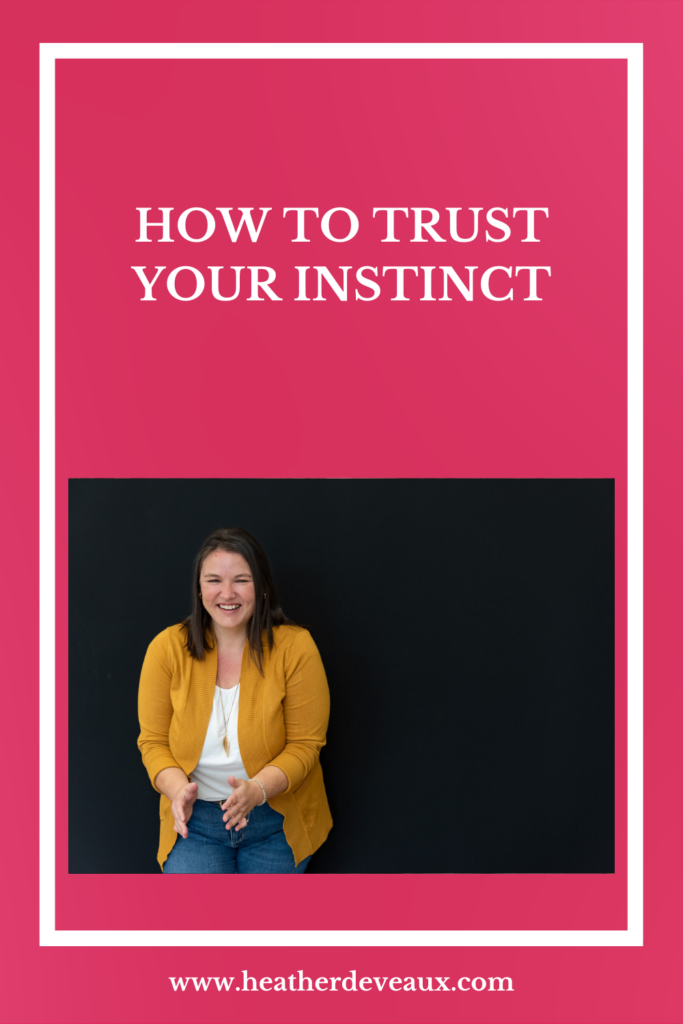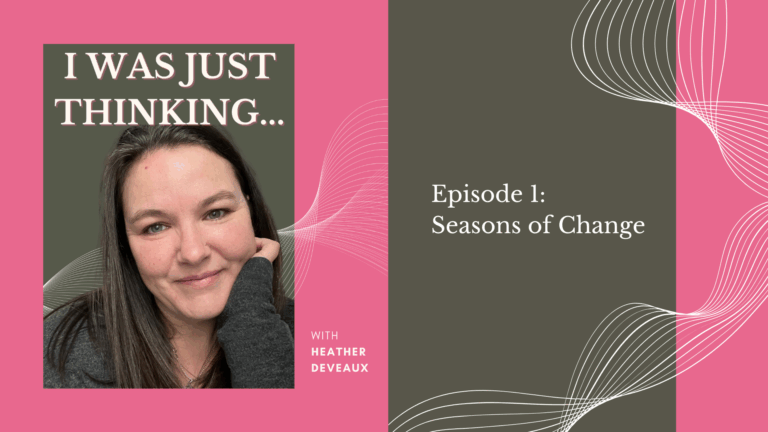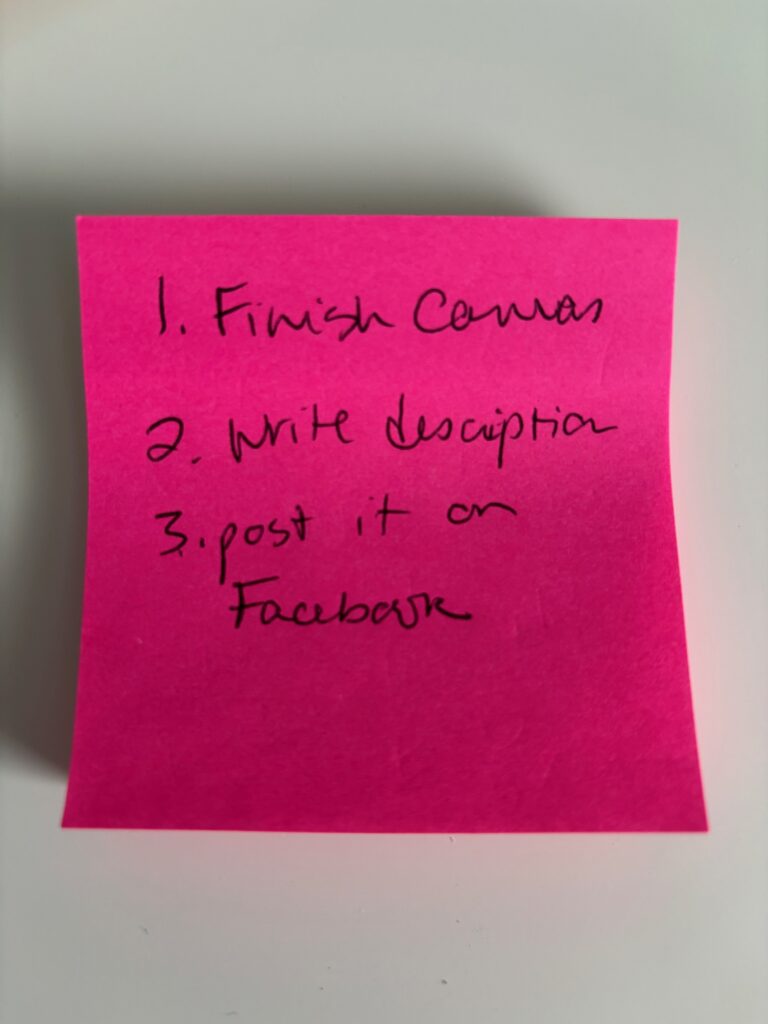How to Trust Your Instinct
We’ve all been given the advice to trust your instinct when it comes to making important decisions in our lives. And that’s great advice. Except, how do you do that? How can you tell when something is just a thought trying to slow you down or if it’s something more you should pursue? I’ve been asking myself these questions a lot as of late and I thought it would be interesting to explore them with you here.
Recognize Your Instinct
It took me a long time to recognize when I was stressed out. It probably seems like it would be obvious when someone is stressed out, but that wasn’t the case for me. For years, I held my stress in my body without realizing it. I would get cranky and “snap” about the littlest things. It wasn’t until I started paying attention to what was happening in my body that I was able to recognize the urge to flip my lid and identify the source of the lid flipping as stress.
It took landing in the hospital during one particularly stressful time in my life to make the connection. It’s not the ideal way to get to know yourself, but I’m thankful for the experience just the same. It showed me a simple and truthful way for me to understand my body and mind in the same moment.

Pain is a Sign Your Instinct is Trying to Talk to You
What did my body do that made me sit up and pay attention? For starters, a muscle in my back spasmed so badly, it basically detached itself from the fascia holding it together. Or whatever doctor-speak for “dislocated muscle” is. The pain was so bad in my back that I couldn’t breath. Of course, I thought I was having a heart attack. That’s the go-to answer whenever someone has chest or back pain. And my father died at the age of 33 of a heart attack, so the story fit. But it wasn’t a heart attack. It was stress. The kind of stress that doesn’t just bring you to your knees; it collapses your body on top of itself trying to let you know something is wrong.
Did I pay attention? Sure. Did I do something about the stress? Not right away. In fact, I would continue to not only expose myself to stressful situations for several years to come, I’d create them. Hello, entrepreneurship. But because I had this one piece of information about how my body reacts to stress, I was better able to recognize it and manage it, going so far to remove myself from it from time to time, if necessary.
Naming the Pain
I have, for years, described this “back pain” as if someone is pushing a drill through my shoulder blade. It starts as a pin-pointable burning in my right shoulder and if I continue to ignore it, it will grow into a full fledged boring sensation. Boring as in drilling. It’s like something is trying to excavate my shoulder blade from my body. In some cases, if I don’t get things under control, the pain will make its way through my shoulder blade, my shoulder, and eventually make it to my chest where the breathing starts to hurt again. Good times.
I’ve come to recognize this pain not only as an indication that I am stressed out, but that there’s more to the story than I’m letting myself see or understand. When I find myself feeling stressed, I have to stop and evaluate the situation. Am I stressed about timing? People? Logistics? Expectations? Disappointment? Money? Sleep? Food? Or anything else that lives outside of me but somehow impacts inside of me. You can fill in the blank with whatever comes up for you.
I’ve been able to develop a line of questioning for myself that helps me move from, “Is this something I can control?” to “How do I want to respond to this?” pretty quickly. That is to say, as quickly as I can bring myself to recognize the stressors in the first place.
Catching the Pain in Action
This shoulder-pain-stress identifier is years old now. I’ve been able to navigate some pretty wild situations by catching the pain in my shoulder and intervening before things get bad again. It’s helped me in a lot of ways I wish I didn’t have to help myself, but that’s a part of life we all have to live with, I think. We all face and deal with stress.
The sooner we can recognize what stresses us out, how to know we are stressed out, and what to do to alleviate the stress, the sooner we can go back to being kick-ass humans. Stress holds us captive. It prevents us from living our full lives. And it’s mostly the thoughts we have about stress that makes it feel like it can bring us to our knees.
But one of the ways I’ve noticed how I handle stress is powering through. It’s how I missed the shoulder pain for so many years. I had developed a habit of just pushing through the pain, figuratively and literally, and wouldn’t deal with the stress until the source of the stress was gone. Or I burned myself out to the point I could no longer deal with the stress. Not a great way to live, let me tell you. It looks like I handle crises without breaking a sweat, but it’s because I’m not sweating. I’m trying not to scream from the pain in my shoulder, actually. Same, same.
Intervening and Working with Your Instinct
I can feel the shoulder pain coming from a mile away now. But in recent years, a new feeling has emerged in my stomach that has caught my attention. And it’s been instrumental in helping me make big life decisions that have been difficult, but necessary. I’ve come to know this feeling as my instinct because I pay attention to the feeling and know when it shows up, I should start looking around for what’s wrong in my life, my environment, the people I’m spending time with, my work, my sleep, the way I’m eating…all of it. This feeling, which is much different from the drilling pain in my shoulder, is more of a cramp. It’s like my stomach sucks itself into a ball and things become very uncomfortable very quickly.
For example, if I’m uncomfortable around someone, my stomach knots itself up. It’s not that I’m shy or that I’m not having a good time. That’s my body telling me there’s a vibe here that we don’t like. Of course, I attributed it to the creamy coffee I just drank, but when I got quiet and I really listened to my body in certain situations, it became clear that it was silently trying to tell me to make a change. “We don’t like this,” it would say in the only way it knew how.
Going Beyond the Pain
What happens when my stomach gets knotty? I get tired. I feel drawn out. I don’t have any energy. I am cranky. I binge eat. I avoid responsibility. I do a lot of things I wouldn’t normally do like spend hours watching television just to zone out. That’s not how I live my life. And yet, when I feel all tied up inside, that’s exactly how I live my life. So I had to do some thought work to make the connection between what I was doing, how it was making me feel, and how removing myself from those situations relived the pressure in my stomach to the point where I felt calm again. Not just calm, but neutral.
As a high-strung, ambitious, ADHD entrepreneur, I’ve never felt neutral about anything. Until I was able to find the source of the discomfort in my life and remove it. It created space for me in a way that felt foreign and scary. It’s scary to not recognize a part of yourself at this age. It’s also wildly telling about how long I tried to manage myself for the sake of others.
These pains and discomforts could easily have gone on being ignored for many more years. But because I stopped moving and started listening to my body, and I made meaning through reflecting back on my experiences that brought about those feelings, I was better able to decipher them in a useful and productive way. It’s one thing to pay attention to yourself to learn something. It’s another thing to actually do something with the information.
Using What I’ve Learned About Your Instinct
I discovered it took time to trust these feelings as instinct. And that meant I had to accept the fact that I couldn’t always trust my thoughts about something. And that, more than anything, was very disorienting. We have countless thoughts every single day. If you’re like me, your brain kicks things into high gear around 4 am every night and you have even more thoughts. But how often do we question those thoughts or straight-up call bullshit?
I started calling bullshit about ten years ago when I finally made the decision to start my own business for real. It took a while for me to realize that many of the sources of stress I experienced weren’t just external, they were also internal. I was stressed about what I was thinking about a particular situation, not just the situation. And instead of paying attention to the knot in my stomach, for years, I just thought I had stomach problems. I do, by the way, have stomach problems, but not to this extent. This is a different kind of problem. It pleads with me to pay attention and to do something about it. The actual stomach problems just tell me to stop eating cheese. Ah, no. I’m afraid I’m ready to give up old stories about myself but not cheese. Not yet. Thanks for the suggestion, though.
Counting on Your Instinct
I’ve been able to count on my instinct over the years because I’ve trusted it enough to listen to it. I stopped trying to talk myself out of things because I’m afraid they won’t work or they won’t turn out the way I wanted them to turn out. I think a lot of our hang-ups about trusting ourselves is that we worry about the external results we’re creating instead of focusing on the internal learning that can happen. It’s been my active practice for years to fall on my face and figure out how to get back up again. But if I fall on my face with shoulder pain or stomach pain, I know to do something different when I get back up. This isn’t about making the same mistakes over and over again and calling it learning. Trusting your instinct requires you to adjust and iterate as you go. And if you don’t trust what your body is telling you, it can be difficult to make the changes necessary.
Test Your Instinct
So how can you start trusting your instinct? Start with low-hanging fruit. You don’t need to burn the house down to see a change in your life. Although, figuratively, I’ve done that more than once. What I’m talking about is making small changes when you’re feeling triggered by something to change the way you feel about it.
For example, if you feel uncomfortable around people drinking alcohol but feel like you need to stay to be social, try thinking you don’t need to be social right now or there are many other ways to be social. You’re not isolating yourself forever, you’re removing yourself from a situation that makes you uncomfortable in favour of a situation where you are more comfortable. Yes, you could sit there and work on your thoughts about alcohol, but you don’t have to. There is plenty to learn about yourself just by noticing you don’t like participating in those activities. Your instinct may be trying to tell you that you don’t actually like drinking activities as a social construct through a headache that suddenly develops at the bar, or through a stomach ache even though you haven’t had anything to eat yet. Or you might find yourself getting annoyed for reasons that don’t seem clear. All of these “reactions” are signs that you’re in a place or doing something you don’t really like.
Don’t Run…Learn.
I’m not saying you should practice “flight” as a coping mechanism. I’m saying, you remove yourself from the situation, pay attention to how your body reacts once it’s cleared of the situation, and then ask yourself why you feel uncomfortable. Think about what it means to you when people engage in drinking activities. Reflect on what values are compromised for you when people do that around you. People can do whatever they want, within reason, but you don’t have to participate. So if you’ve removed yourself from the situation, great, but also, take the opportunity to learn about yourself a little more in that moment. This isn’t about drinking. Do a little digging to find out what it’s really about for you. Listen to that. Add it to your bag of tools to help you use your instinct to create the life you really want.
If you want to journal about how your intuition shows ups, consider joining my 5-day Journal Challenge. You can pick a topic and explore it on your own time using prompts designed to help you learn about yourself.





